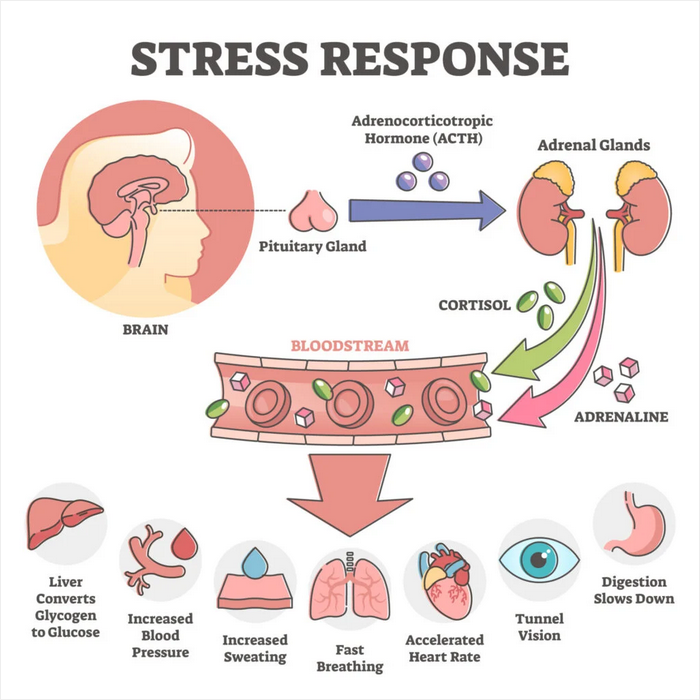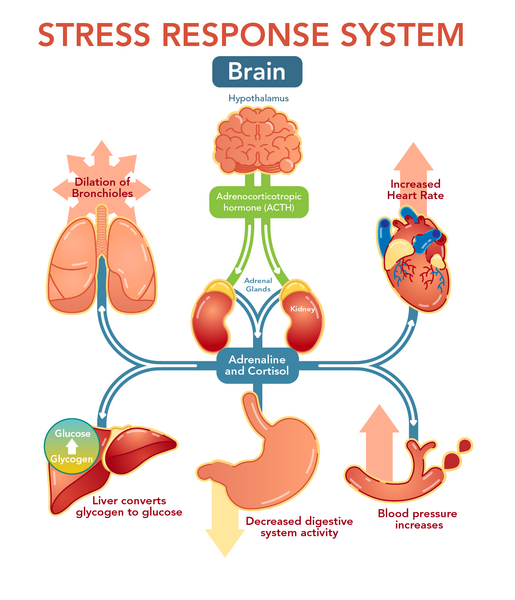Stress is a normal response to challenges that arise in everyday life. In some situations, stress can be useful, it can increase focus, performance, energy, and alertness, allowing us to perform and think better. Experiencing stress can also help us build our coping skills and learn how to adapt easily. When stress becomes overwhelming or prolonged, it can have a severe impact on the brain and body. Understanding how stress works can empower you to manage its effects and help prevent the negative effects.
What Happens in the Brain During Stress?
When you encounter stress, your brain activates the hypothalamic-pituitary-adrenal (HPA) axis, releasing hormones like adrenaline and cortisol to prepare your body to respond. This is known as the “fight-or-flight” response. While helpful in short bursts, such as responding to danger or meeting a deadline, long term or chronic activation of this system can harm the brain.
For more information on the HPA axis and its role in stress, visit APA's Guide to Stress.






